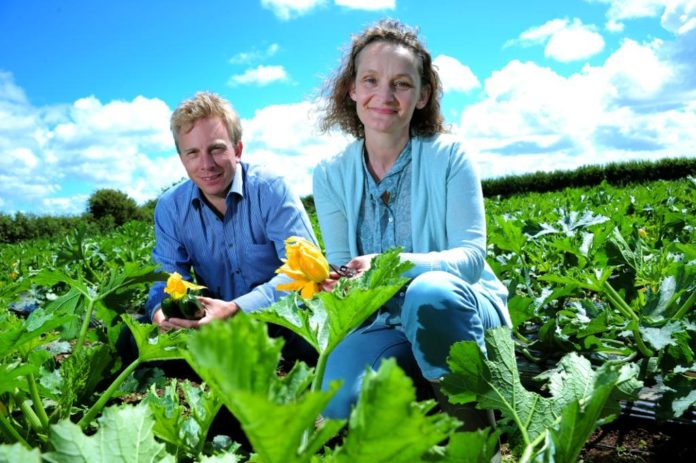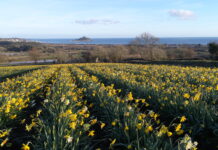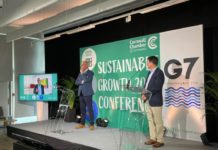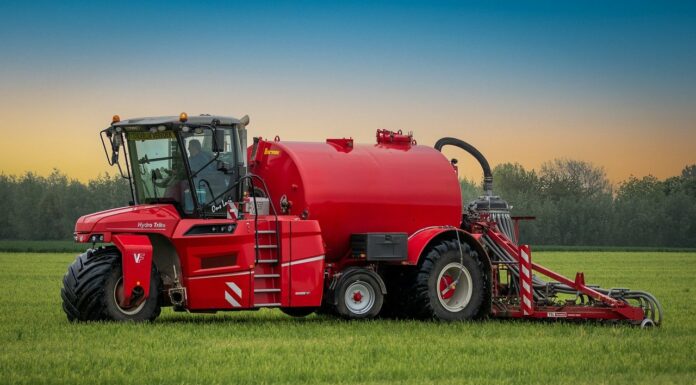Cornwall’s leading vegetable growing company is aiming to increase its profitability and sustainability by providing the best environment for bees.
Riviera Produce, based near Hayle, is collaborating with the University of Exeter’s Environment and Sustainability Institute (ESI) at the Penryn Campus to find out how it can increase its courgette yields by understanding more about how bees and other insects pollinate the plants.
Riviera Produce currently markets nearly half of Cornwall’s cauliflower and spring greens and, over the summer, is also one of the region’s leading suppliers of courgettes.

The research will be carried out by a PhD student funded by the Horticultural Development Company – HDC (Division of the Agriculture and Horticulture Development Board) at the Riviera Produce 5,000-acre Higher Trevaskis Farm.
The research aims to uncover which species are pollinating Riviera Produce’s courgette plants. Courgettes are native to North America where they are pollinated by quash bees, which have evolved to exploit the flowers’ heavy sticky pollen grains. Very little is known about the impact of British bees – or other insect species – on courgette pollination.
The HDC industry representative on the project, Ellis Luckhurst, technical manager at Riviera Produce, said: “Courgettes are a very high value crop with tight profit margins, so just a small increase in yield could make a big difference commercially.
“Pollination is a hot topic at the moment so it is important for us to address these issues. We don’t yet know how much of a role – if any – bees play in pollinating courgettes, but this research will ensure we base any future changes on sound science.”
Professor Juliet Osborne of the University of Exeter’s Environment and Sustainability Institute, added: “This is a great opportunity to do some cutting-edge science while also benefiting a local business.
“I hope this research collaboration will make a real difference to the business commercially and to Cornwall’s local food agenda, as well as helping them ensure they have a positive impact on the local environment. It should be good for the business and good for bees.”








